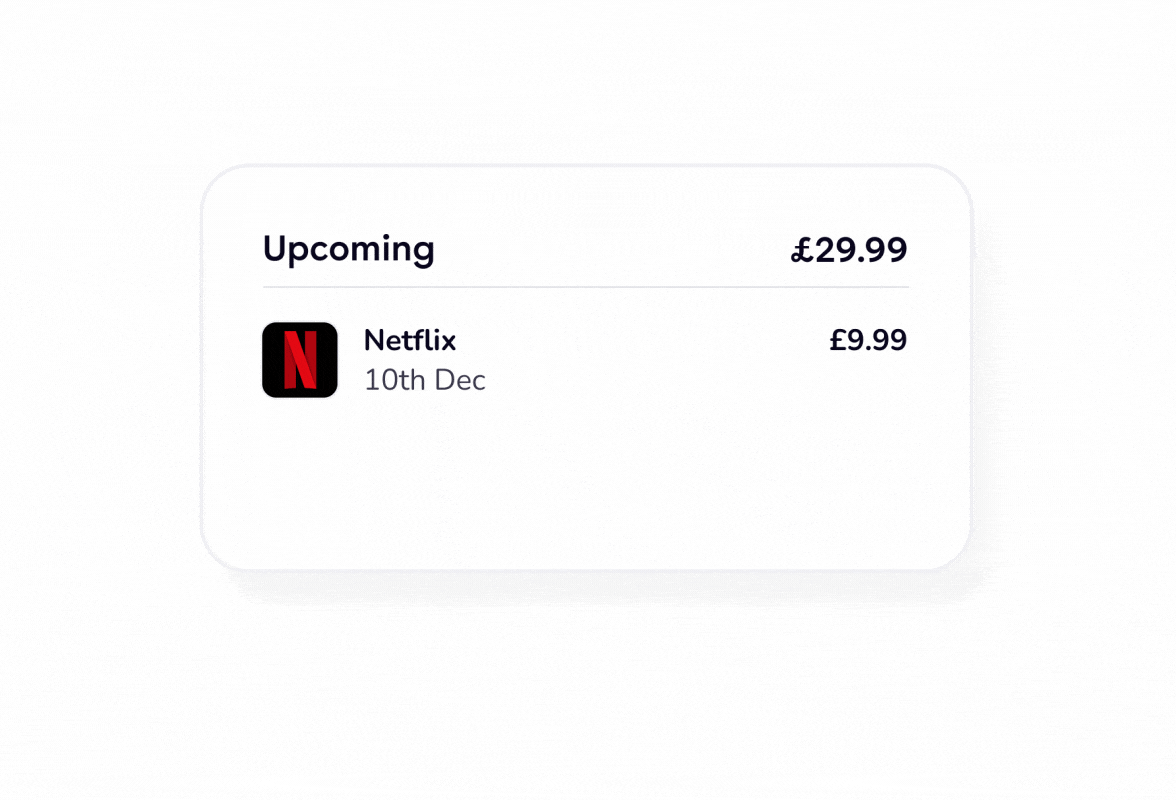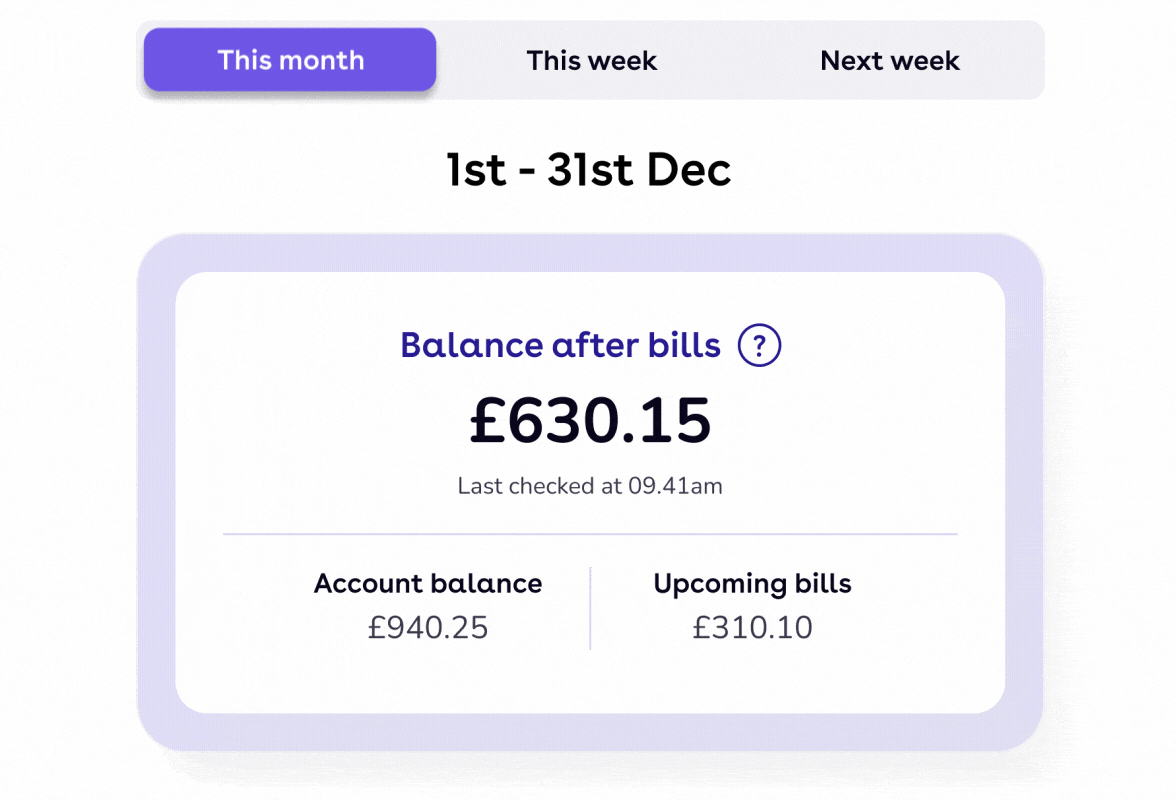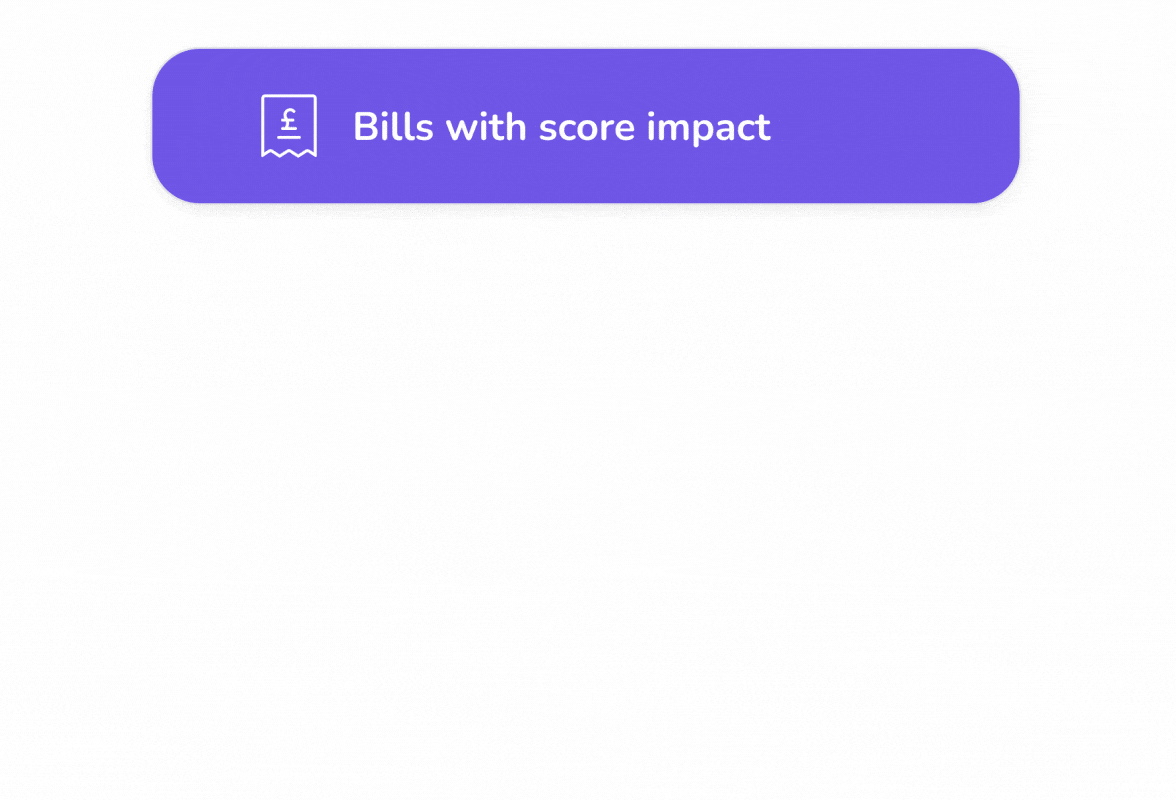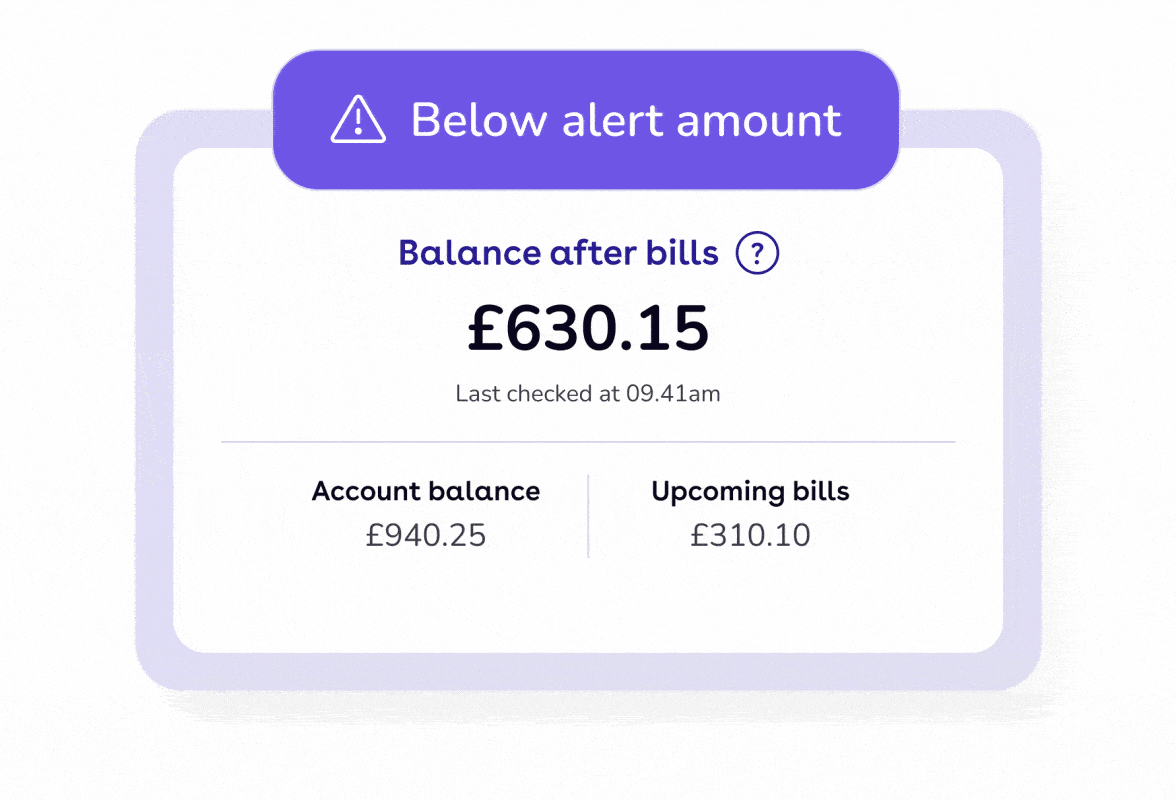Why get started?
Check your monthly budget
See how much you’ll have left to spend after your bills are paid
Avoid missed payments
We’ll tell you when your balance is low to help you stay on track
Stay in control of finances
Prioritise important payments and those that may impact your credit score
View your regular bills
Connect a bank account and you’ll be able to see your upcoming and paid bills, plus when they’re due.

Check your balance after bills
Make sure you’ll have enough to cover important payments, or see which bills could be missed.

See which of your bills could impact your credit score
Paying these on time and it could have a positive effect on your credit score.

Set an alert amount
We’ll let you know when your balance is low or it looks like you could miss a payment.

Open banking is a new way to help you understand your finances, and see if there are better ways you could manage your money.
Using open banking, you can connect your bank account to another financial account, so data can be shared. For example, if you have a NatWest current account, you can connect it to your TotallyMoney account and we can use the data to offer you more services and features.
It’s important to know that all your data is secure and TotallyMoney can’t see individual transactions in your bank account, nor will we know your bank details.
Here is some further information about open banking, including a useful video to explain it a bit more.
We partner with Bud (Bud Financial Limited) to securely connect your TotallyMoney account to your bank account. TotallyMoney is an agent of Bud, and we are both regulated by the Financial Conduct Authority (FCA). If you want to read more about them, check out their website.
This section will display an amount which shows what your balance is, after your monthly bills and payments.
To calculate this, we take your connected account balance and subtract your recurring monthly payments and bills, which equals your balance after bills for the month.
For example, if the balance in your connected account is £250 and your recurring bills add up to £150, your balance after bills would be £100.
As part of the feature, we’ll look at your monthly bills and highlight which ones could have an impact on your credit score. We highlight these so you know which of your regular bills could have a negative impact on your score if they are missed. Stay on top of these bills and your credit score could increase.
Plus, our alerts will let you know when your balance after bills is low (you can set this amount yourself). That way you can make sure you don’t miss any important payments, including those that impact your credit score.